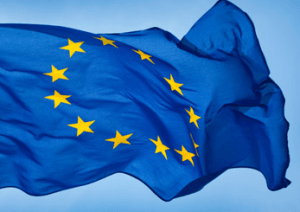Ghana starts implementation of Interim Economic Partnership Agreement
 The government has started the implementation of the Ghana-EU Interim Economic Partnership Agreement (IEPA) effective July 1, 2021.
The government has started the implementation of the Ghana-EU Interim Economic Partnership Agreement (IEPA) effective July 1, 2021.
Accordingly, effective July 1, 2021, and under the terms of the IEPA, Ghana will progressively liberalise tariffs for 80 per cent of the total volume of exports from the EU to Ghana, with cumulative tariff cuts for approximately 22 per cent of applicable tariff lines in 2021, 50 per cent by 2024 and 100 per cent by 2029.
This was announced in a joint statement between Ghana and the European Union represented by the Executive Vice-President and Commissioner for Trade of the European Union, Valdis Dombrovskis, and Mr Alan Kyerematen, Minister of Trade and Industry.
The statement said the IEPA covered trade in goods only and secured duty-free quota-free access to the European market for Ghanaian goods in exchange for progressive tariff liberalisation for EU exports into the Ghanaian market.
It said key elements of the Agreement included duty-free quota-free access to the EU for all imports from Ghana except arms and ammunition.
The statement also announced the asymmetric and gradual opening of 80 per cent of Ghana’s market to EU goods, taking full account of the differences in levels of development between Ghana and EU.
It said Ghana had commitments from the EU and its Member States to fund the EPA Development Programme and strengthen administrative and customs cooperation to facilitate trade development.
The EU is Ghana’s largest trading bloc and is a significant market destination for many of the top non-traditional horticultural exports, including processed cocoa (cocoa paste, butter, and powder); processed fish and seafood; pineapples; bananas; yams; mangoes; cashew nuts; fruit juice; and natural rubber.
Ghana’s export to the EU market is about 40 per cent of the country’s total annual exports.
After initialing the IEPA in November 2007, and since the ratification of the Agreement in December 2016, the EU maintained 100 per cent duty-free, quota-free access to the EU market for exporters of Ghanaian products.
Ghana’s main annual imports from the EU are machinery; vehicles (light and heavy duty); chemicals and allied products; metals; animal products and processed foods.
The statement said about 40 per cent of Ghana’s top 20 imports from the EU were machinery, equipment, and parts and access to cheaper machinery and new technology was expected to enhance Ghana’s industrialisation.
It said heavy-duty and light transport vehicles also accounted for about 38.7 per cent of the top 20 imports from the EU into Ghana.
“It is to be noted that machinery and equipment (capital goods) imported for production in Ghana from the EU will be libralised. However, vehicles are excluded from the libralisation,” it added.
Although the IEPA was concluded in December 2007, and ratified by Ghana in 2016, the implementation of the tariff liberalisation schedule was delayed pursuant to technical adjustments agreed between the EU and Ghana.
Source: GNA
